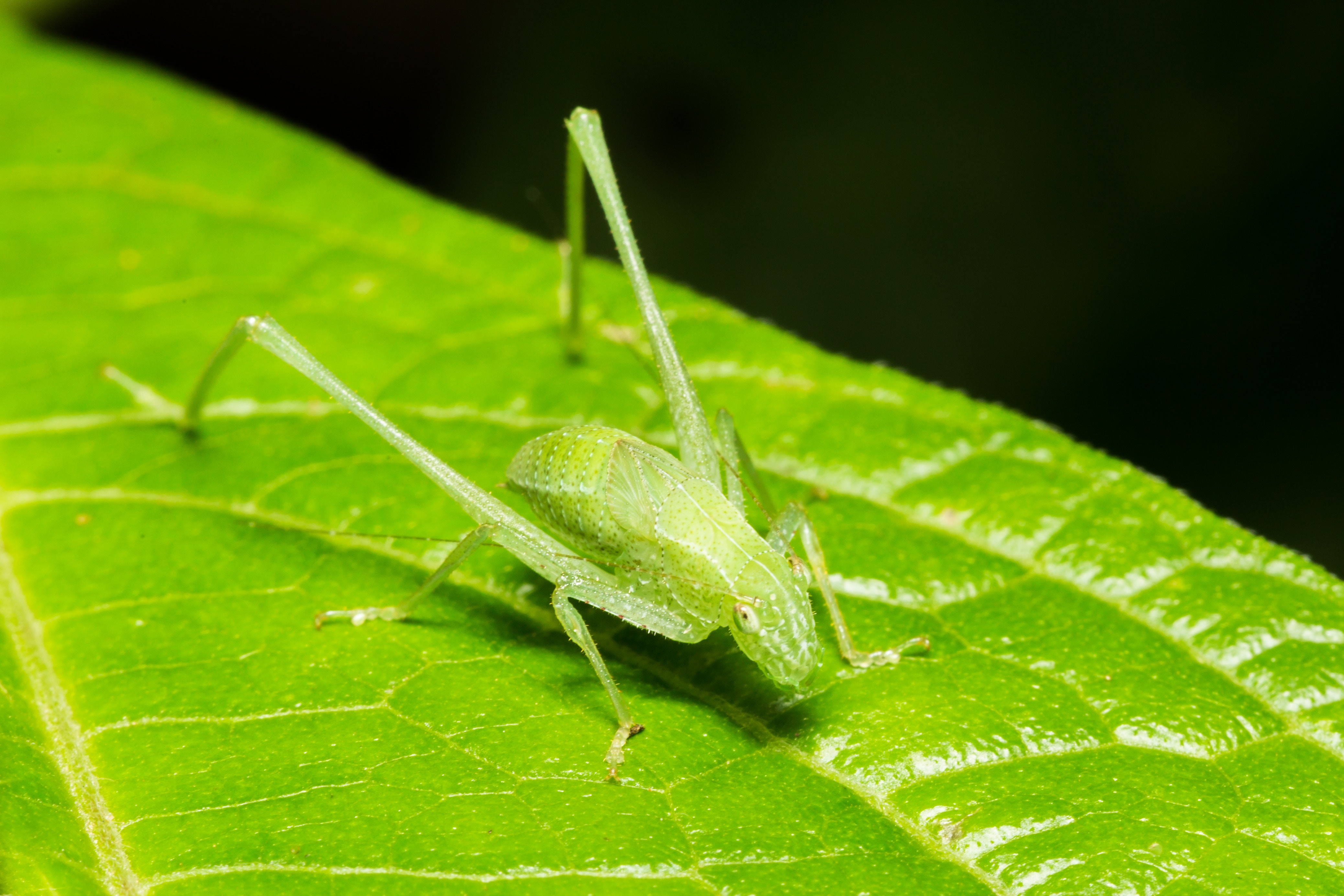Several allergic reactions to crickets have been reported within the past two years. Crickets are anthropods, like shrimp, crabs, and lobsters. This means they contain some of the same protein, so individuals who are allergic to shellfish may develop an allergy to crickets. There is also a relation to cockroaches. Researchers have found that crickets contain some of the same proteins as cockroaches. If you suffer from a cockroach allergy, you may react to crickets.
A cricket allergy is mostly brought on from ingestion. Eating crickets is a growing trend in North America as cricket protein is being used as a common ingredient in some recipes. Cricket flour is one of the ingredients used in some baked goods. It is made by milling crickets. Many people use cricket flour when baking as an added source of protein and nutrition. Since crickets contain 55-70% of protein, they are considered a healthy treat. They are also high in nutrients and amino acid.
While crickets are considered safe and healthy to eat, for those who are allergic, they pose a serious threat. When ingested, crickets can cause anaphylaxis and other serious reactions. Before jumping on this new trend, it’s important to know the risks of consuming this insect.
Cricket Allergy Symptoms
- Nausea
- Fever
- Seizures
- Hives
- Itchiness of the tongue and throat
- Asthma
- Anaphylaxis
It is not uncommon to experience anaphylaxis from eating crickets. The allergists at NY Allergy & Sinus Centers have seen and treated a patient who suffered from this condition. The first symptoms of a cricket allergy may be delayed in the first exposure, though they are often brought on immediately. When considering cricket allergy to be a food allergy, you must seek treatment as soon as possible.
Cricket Allergy Diagnosis
There isn’t a commercial test for cricket allergy; but if you wish to add crickets to your diet, you can schedule a food challenge at one of our allergy centers. You may be asked to consume cricket flour or a product that contains cricket protein. During the challenge, our allergists will ask you to stay in our office for at least an hour to watch for any delayed symptoms. They will have emergency medical equipment on hand in case a severe allergic reaction occurs.
We can also test you for shellfish and cockroach allergies to determine if you’re at risk of developing a cricket allergy. Sometimes the allergy isn’t brought on after the first exposure. It may take multiple exposures to develop a cricket allergy. In this case, when you test positive for a shellfish or cockroach allergy, you may be recommended to avoid crickets.
Cricket Allergy Treatment
Minor symptoms of cricket allergy can be treated with antihistamines. Some allergy medications can treat swelling and itching. You might also need a prescription for an oral steroid to treat symptoms related to asthma. Our allergists will develop a personalized treatment plan designed to help you feel better fast.
More severe symptoms must be treated with epinephrine. It is the only medicine available for anaphylaxis. Consult with our allergists to determine if an epinephrine auto-injector is necessary for your condition.
Allergies Similar or Related to Cricket Allergy
Cricket allergy is similar to shellfish allergy. They contain some of the same proteins and the reactions are usually the same. Shellfish allergy is one of the top eight foods that cause severe allergic reactions. Since crickets are in the same family as shellfish, we recommend you avoid crickets if you’re allergic to one or more types of shellfish.
Cricket allergy is also related to cockroach allergy. With this relation, symptoms are usually mild. The primary symptom a cockroach allergy is asthma. In this case, you may experience breathing problems by just coming in contact with the insects. You’ll not only have to avoid eating them but try to stay away from them completely.
Cricket Allergy Frequently Asked Questions
If you suffer from a shellfish or cockroach allergy, you could be allergic to crickets. They contain the same proteins. You should get allergy tested before trying crickets.
Because of the recent growth in cricket consumption and the reactions that followed, cricket allergy is considered a food allergy. However, you can also have a reaction just by coming in contact with the insect.
For those that are not allergic to crickets, it is completely safe to them. They are considered an edible insect and contain many nutrients.
No, cricket allergy is not curable. You should avoid crickets if you’re allergic to them as the allergy can worsen with each exposure.
Cricket Allergy is diagnosed with a food challenge. You’ll need to consume a product that contains cricket protein to receive an accurate diagnosis. It may also be necessary to get tested for a shellfish or cockroach allergy since they are closely related.
Cricket Allergy symptoms can be treated with antihistamines or oral steroids. If your condition is more serious, you’ll need a doctor to prescribe epinephrine. Contact our allergists for more information.
Conclusion
Cricket Allergy is increasing throughout the United States. If you plan to add crickets to your diet, you should consult with an allergist first. Our NYC allergists have extensive experience in allergy and immunology. We offer locations throughout Manhattan and Queens and can diagnose and treat your condition during your first appointment. Call (212) 686-6321 to book your appointment today.

